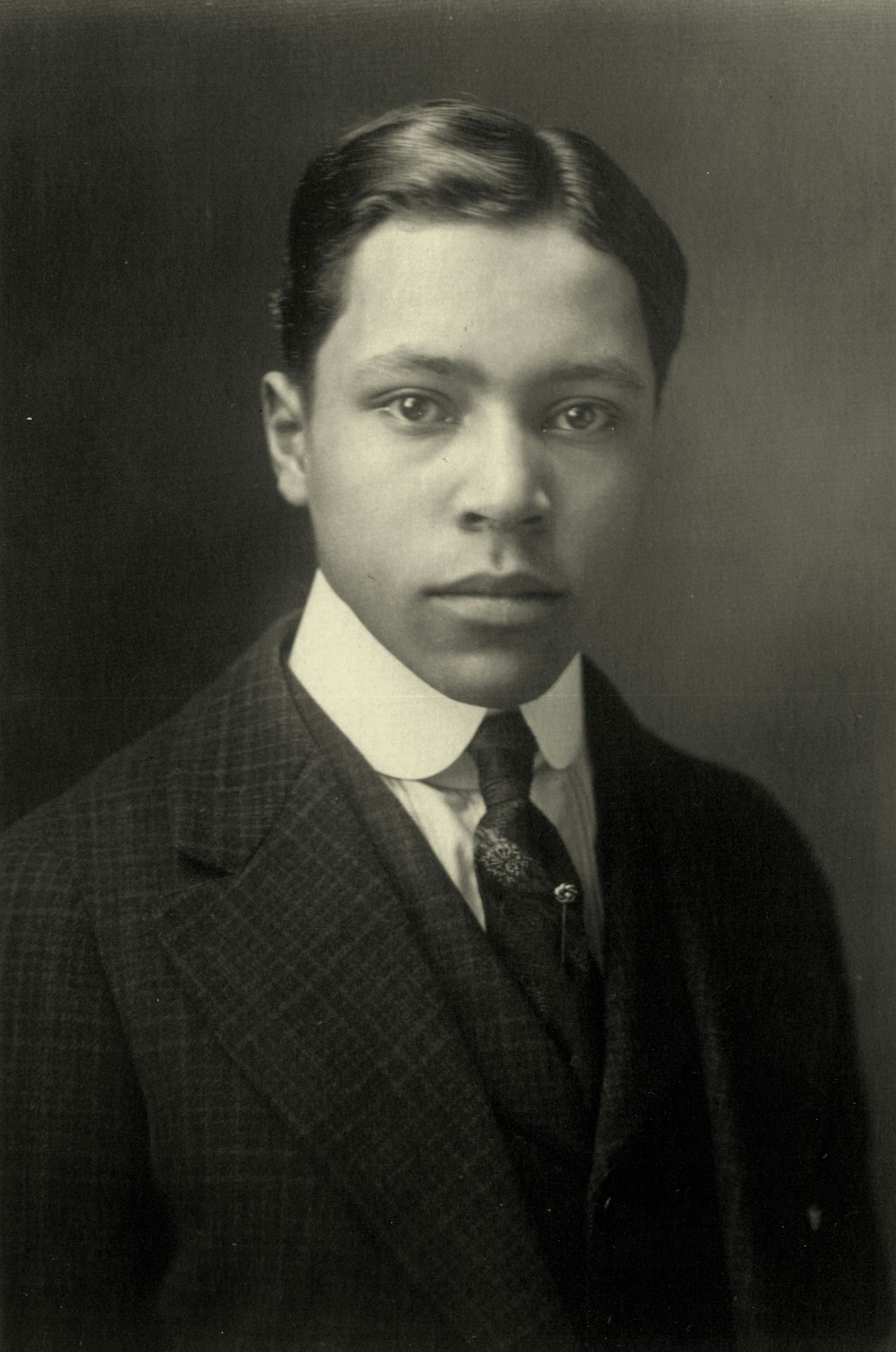Edwin Bush Jourdain Jr.
Edwin Bush Jourdain Jr. played a key role in Harvard’s “dormitory crisis” that illuminates the intertwined histories of discrimination and resistance among early Black students at Harvard and Radcliffe.
In the early 1920s, William J. Knox Jr., an incoming Black freshman, appeared for in-person examinations only to have his room assignment in the freshman dormitory revoked shortly thereafter. Knox wanted to know why. And so did Edwin Bush Jourdain Jr., a childhood friend of Knox and a Black student at Harvard Business School who had lived in the College’s freshman halls just a few years earlier, when he joined the Class of 1921.
Sparking a Nationwide Protest
The son of the New Bedford, Massachusetts, attorney Edwin Jourdain Sr.—a cofounder, with W. E. B. Du Bois, of the Niagara Movement, the precursor to the National Association for the Advancement of Colored People—Jourdain was no stranger to controversy or activism. So Knox and Jourdain met with Dean Philip Chase and asked, If Jourdain had lived in the freshman halls as a student in the 1917–1918 academic year, why now, just a few years later, was Knox apparently barred? According to Chase, University President Abbott Lawrence Lowell reasoned that the University could not force white students to live alongside Black students in the newly mandatory freshman dormitories. His answer was to bar Black students from this celebrated new feature of Harvard College life. Jourdain’s time in the dormitories was written off as an oversight or a wartime expediency.
Jourdain refused to accept this, and he went directly to President Lowell. It’s worth pausing to consider the courage that this must have required. As Edwin Jourdain’s son Spencer, a distinguished Harvard alumnus himself, has observed: “The drama of it is one young Black man, just turned 21, confronting one of the most powerful people in the country, and therefore the world, and facing him down. … And he did it without any fear and without any hesitation.”
When Edwin Jourdain and Lowell met, Lowell dismissed Jourdain’s objections and defended the policy. Harvard enrolled large numbers of white students from the South and West, and—in Lowell’s eyes—the University couldn’t risk alienating them for the sake of its few Black students. If forced to choose between cohousing Black and white students and excluding Black students from the University altogether, Lowell implied he would choose the latter.
But Jourdain persisted. He was a founding member of the Nile Club—a social organization for young Black men at Harvard in the early 20th century—which became a powerful driver of efforts to end segregation in Harvard’s freshman halls. Newspapers across the country began to report on the club’s efforts. By the summer of 1922, an alumni petition opposing the policy drew further public scrutiny. When months passed with no change, prominent Black alumni challenged the policy in the New York Times. Letters poured in. Finally, in 1923, Harvard responded and forbade exclusion from the dorms on account of race.
Continuing the Struggle
But the Nile Club’s legacy is far greater still. Its members included Charles Hamilton Houston—the brilliant lawyer known as “the man who killed Jim Crow” and a lifelong friend of Jourdain’s—along with others who would go on to play integral roles in 20th-century struggles for equal citizenship rights.
Edwin Bush Jourdain Jr. went on to a long and illustrious career as a civil rights activist, journalist, and public servant. In the 1920s, he worked for multiple Black newspapers in Chicago, serving for a time as the news editor of the Chicago Defender and managing editor of the Chicago Bee. In 1931, he was the first Black person elected as an alderman in Evanston, Illinois, where he fought to integrate public accommodations and schools. He stepped down in 1947 to become the first Black assistant state superintendent of public instruction in Illinois history.
Sources
Edwin Bush Jourdain, Jr. Papers, Shorefront Archives.
https://bmrc.lib.uchicago.edu/portal/view/?id=BMRC.SHOREFRONT.JOURDAIN.xml
Jourdain, Spencer. Dream Dancers, Volume 1: New England Preservers of the Dream 1620–1924. Evanston: Shorefront Publishing, 2011.
Jourdain, Spencer. Dream Dancers, Volume 3: E Pluribus Unum—The Battle for American Equality 1924-1947. Evanston: Shorefront Publishing, 2019.
Edwin Bush Jourdain, Jr. and President Abbott Lawrence Lowell meeting transcript, circa October 1921. Papers of Albert Bushnell Hart, Harvard University Archives.
https://id.lib.harvard.edu/ead/hua03003/catalog






